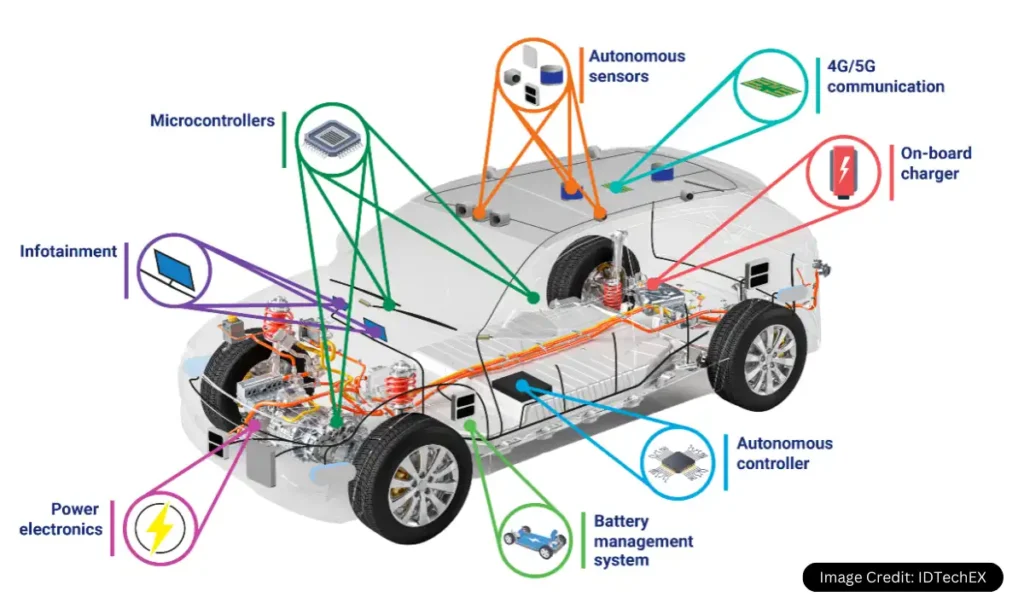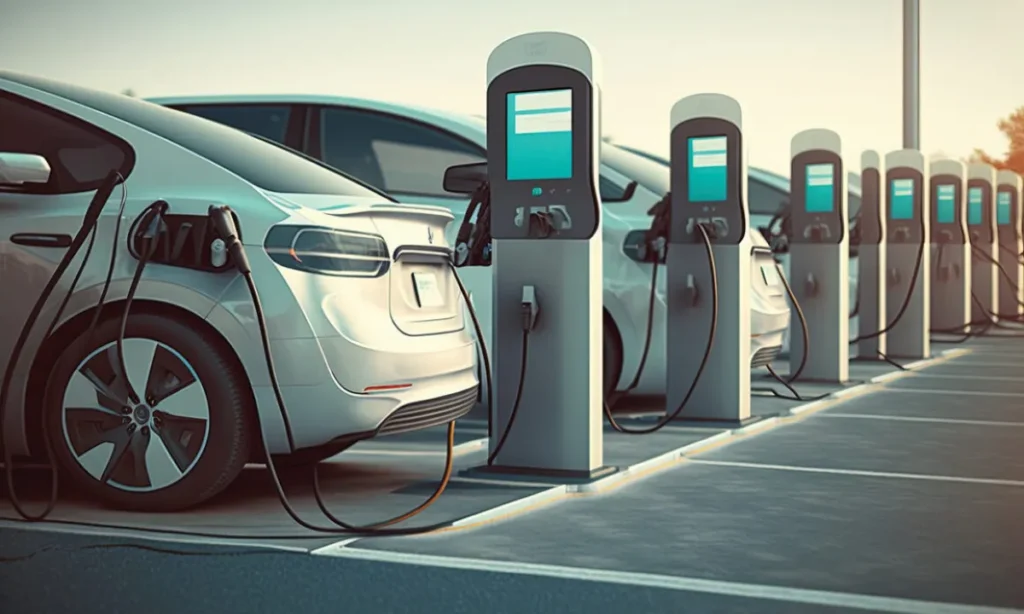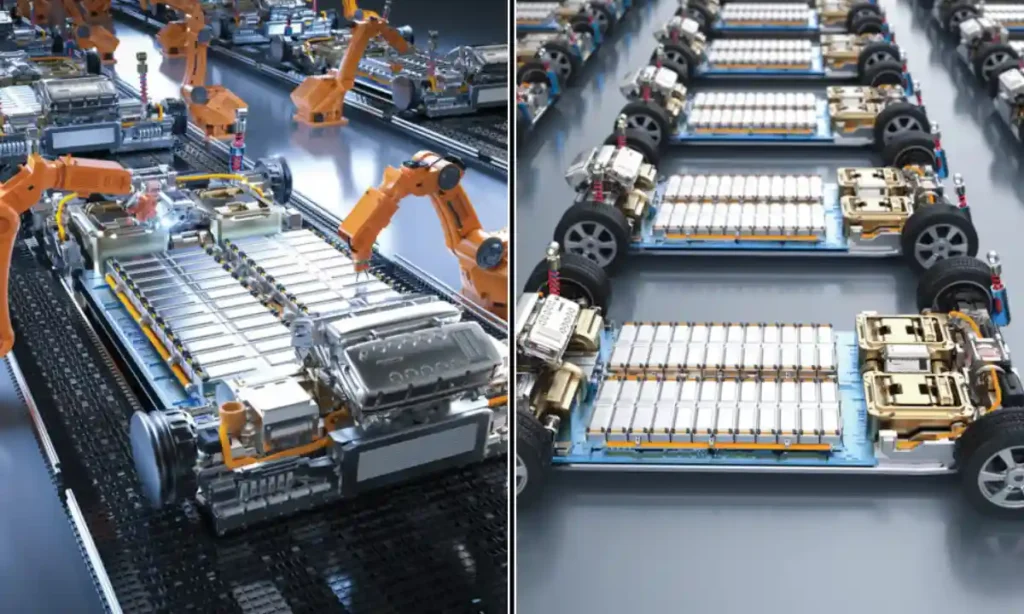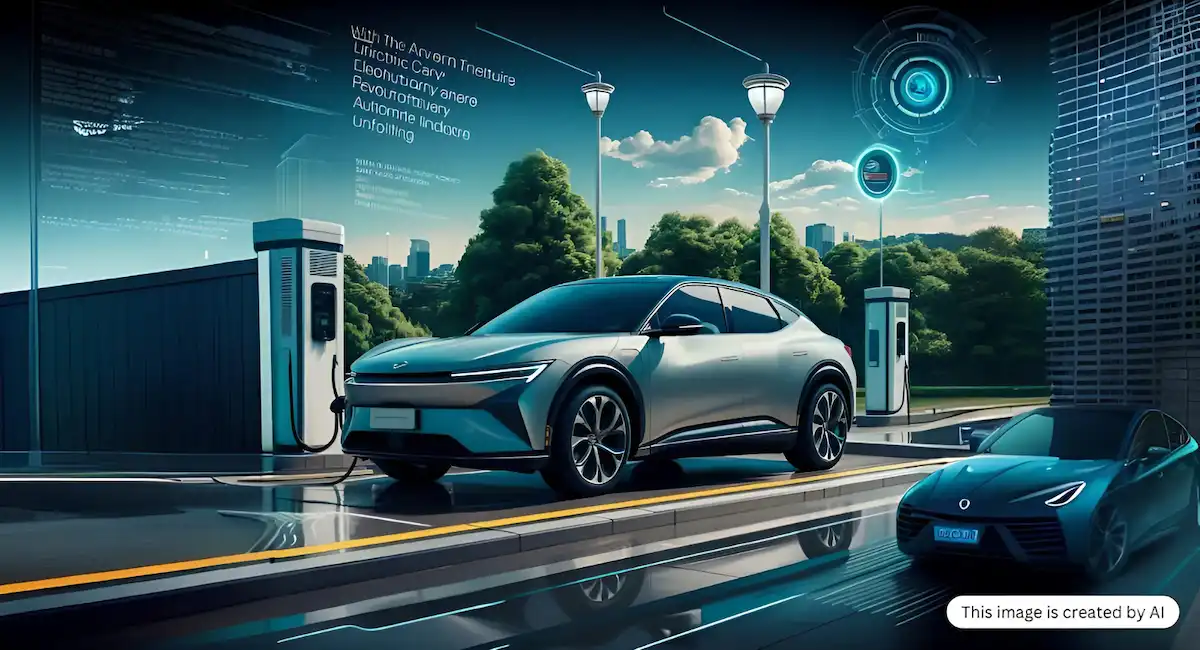With the Rise of Electric Cars, revolutionary changes in the automotive industry are unfolding. These super green vehicles immediately reduce greenhouse gas emissions and offer significant cost savings in transportation. Technological advancements are enhancing the convenience and appeal of electric vehicles (EVs) by providing longer battery life and more extensive charging infrastructure.
In this, we cover the benefits and disadvantages of electric cars as well as where innovation can take us in the years to come. Come with us as we take a perusal down the road to see what it takes to find something that is odorless, quiet and better for you than walking.
Electric Cars are Terrible for the Environment
The most appealing argument in favor of electric cars is, certainly, that they are an eco-friendly replacement. When you drive a gasoline vehicle, greenhouse gases (GHGs) and other pollutants are emitted, contributing to climate change and poor air quality. On the other hand, electric vehicles emit no tailpipe emissions whatsoever – a truly green alternative!

■ Greenhouse Gas Reduction: One of the biggest contributors to greenhouse gases is transport. Thankfully, we can decrease the spread of CO2 into our skies by jumping to electric vehicles instead. This change is pivotal to climate control and the global warming battle.
■ Better Air Quality: The air in cities is often polluted with emissions from vehicles. When we switch to electric vehicles, we reduce the number of pollutants in the air and improve air quality. Cleaner air means a better environment for people, with fewer respiratory ailments.
Economic Benefits of Electric Cars
There are a number of economic advantages in general to the use of electric cars that appeal widely across consumers as well as regulatory agencies. Electric cars are more energy-efficient than petrol cars, which saves consumers money at the pump. They create jobs in new industries such as electric vehicles and charging stations.
■ Lower Operating Costs: One of the biggest benefits to owning an electric car is the low operating cost. In fact, it’s often 20% cheaper to charge an EV than it is to fill up a gasoline tank. And because electric cars have only 10 moving parts compared to 2,000 moving parts in combustion engines, they require much less maintenance.
■ Government Subsidies: I’m excited to see governments around the world offering incentives to encourage the sale of electric vehicles. I think this is a great move that can help reduce our reliance on fossil fuels and improve air quality. Governments around the world are offering a variety of incentives to increase sales of electric vehicles, including tax credits, rebates, and grants. These costs can add up and, in many cases, mitigate the extraordinary amount of fees that bring electric cars well into a special $60,500 range – or even higher than Tesla’s slice associated with taxes.
Technological Advancements in Electric Cars
The rise of electric cars The progress in technology is almost synonymous with the birth and proliferation of the current electronic mode. Cutting-edge advances in battery technology, charging infrastructure, and vehicle design have rendered electric cars more usable by the public.

■ Battery Technology: The emergence of lithium-ion batteries has transformed the scope of electric vehicles. They offer higher energy density and a longer range, with much faster charge times. However, even better advancements are right around the corner, with further research and development into solid-state batteries and other advanced technologies. It will be exciting to see what these breakthroughs mean for the future of transportation.
■ Charging Network: I think the importance of a strong and growing charging network cannot be overstated. That’s why governments around the world, as well as private companies, are investing billions to develop global recharging infrastructure. Fast-charging stations, in particular, are popping up all over the place, making charging your EV faster and easier than ever.
■ Car Electrification Vehicle Design: Electric vehicle design is pushing new features and concepts in performance, safety and user experience. Electric vehicles are becoming more efficient and better to drive thanks to advances in aerodynamics, lightweight materials and integrated technology. By leading to more efficient and better cars to drive, these advances are creating a better world for us all.
Challenges for Electric Cars
There are many benefits of using an electric car. However, in order to reach their full potential, they need to overcome some challenges. For example, electric cars currently have a limited driving range on a single charge and not enough charging stations are available.

■ Range Anxiety: A major concern for potential electric car buyers is range anxiety. The fear that the car will not have enough battery power to move from one place to another. Modern electric cars can travel many more miles on a charge than earlier models could, but for some potential buyers, the limitations of current EVs in terms of range and charging times are very real barriers. Further breakthroughs in battery technology and charging infrastructure will do a lot to solve this.
■ Charging Infrastructure: While the count of charging points has started growing, today it still pales in comparison to the vast network of gas stations. Convenience and ease of charging play a major part in the decision to go electric. With the number of EVs on the road rising, investment in charging infrastructure must not falter.
■ Higher Purchase Price: Electric cars are generally more expensive than traditional cars because of the costly batteries they require. However, as battery production scales up and technology improves, these costs should come down. Of course, in the meantime, government incentives and subsidies can help to offset some of that higher initial cost.
■ Battery Recycling and Disposal: Nothing is stated here, but as electric vehicles become more numerous, so shall the ways of effective battery recycling and disposal. While breaking apart one of the batteries, a team member drops a piece or two into each bag; then they are marked as containing hazardous materials and have to be handled carefully so that no soil is contaminated. The long-term viability of electric cars will depend on the development of sustainable recycling processes.
The Future of Electric Cars
The electric car industry has a few bright spots. For one, technology is advancing rapidly, increasing consumer knowledge of electric vehicles and driving EV sales. Additionally, advances in battery technology, such as high-energy density and solid-state batteries, are making EVs a more attractive option.

The infrastructure is also improving with the expansion of fast charging networks and the development of wireless charging technology. On top of that, countries are introducing policies and incentives that encourage people to buy electric cars.
And finally, major automakers are fully embracing EVs, increasing competition and innovation in the industry. The growing consumer market will lead to the growth of electric vehicles – a much more environmentally friendly and cheaper mode of transport.
Conclusion
The shift to electric cars represents a major change in the automotive industry. In this new eco-conscious era, cost-saving methods and technological advances will make electric vehicles more than just transportation. With the positive trend towards the creation of larger charging infrastructure and prices becoming more attractive, the pace of electric vehicle adoption should increase exponentially, leading to a cleaner future.
Electric vehicles are not a fad, but they signal many fundamental changes in how we understand and view our own transportation for years to come. Knowing the advantages, disadvantages, and future prospects of electric transportation will allow consumers to make better-informed decisions, which in turn can further accelerate the transition toward more sustainable vehicles.
FAQ’s
If you think there’s anything I need to know about electric cars, by all means say so. I am interested to hear your opinion. If you have experience using an electric car, share its pros and cons with everyone in the comment box below.


